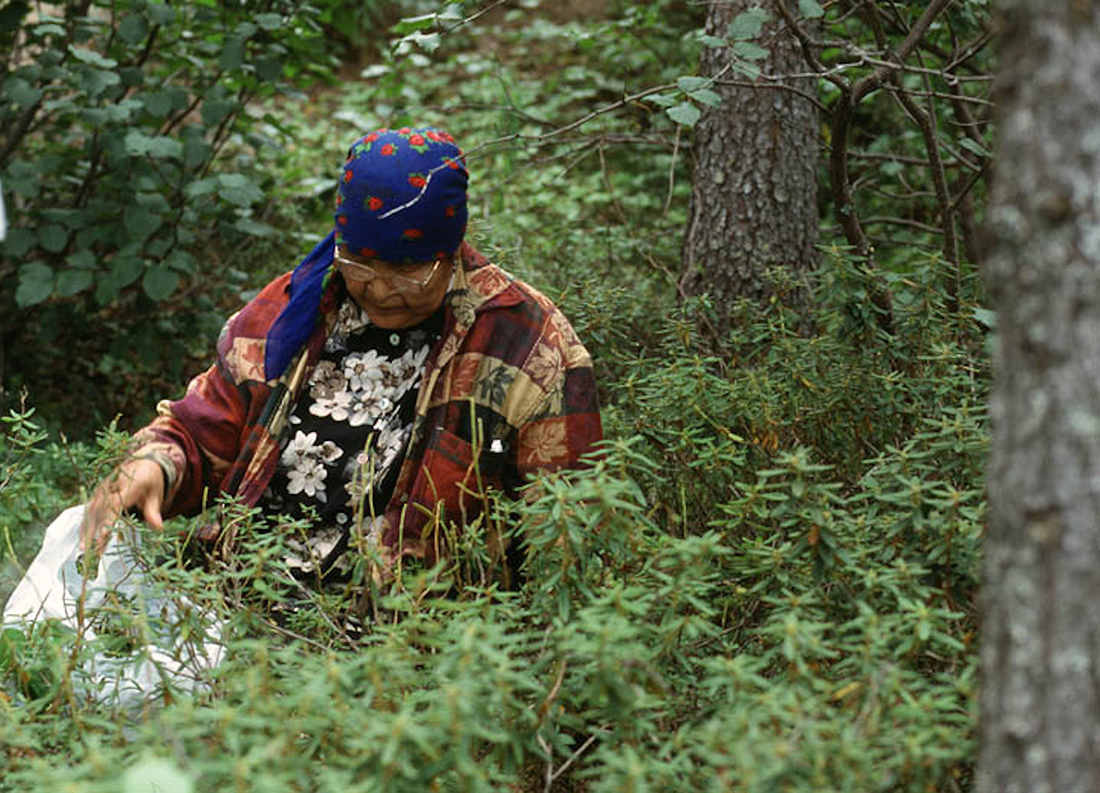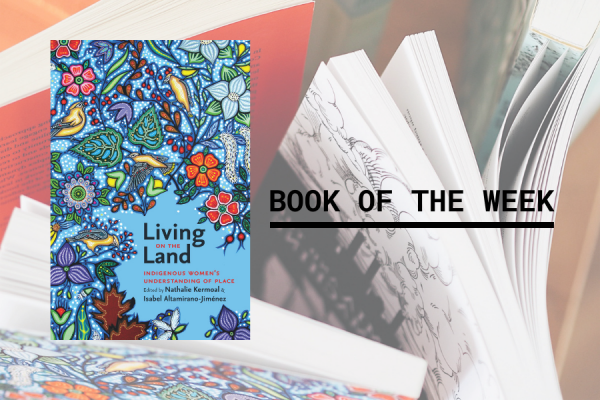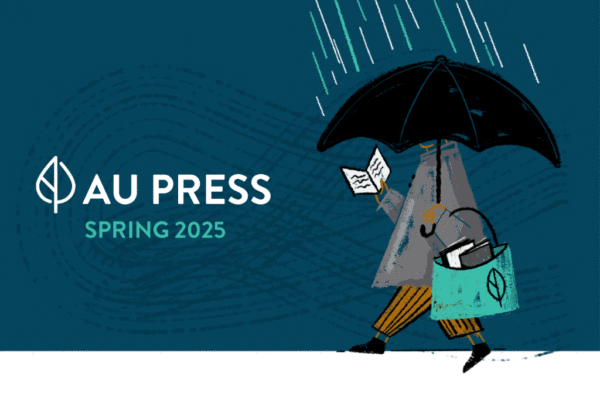National Aboriginal Day is tomorrow, June 21, and Edmonton will be bustling with activities and events that celebrate our indigenous population. You will want to get out to Borden Park for the bulk of the festivities. At 11 am, there will be a Pipe Ceremony followed by PowWow Demonstrations and Traditional Games. Head down to Canada Place to check out indigenous artisans and exhibitors and to partake in cake and bannock. There is more information on the City of Edmonton website.
The Art Gallery of Alberta is partnering with the Amiskwaciy History Series to screen some short Aboriginal art films at 6 pm. There will also be free admission at the AGA from 11 am to 5 pm so you can enjoy some special exhibits by indigenous artists such as “7: Professional Native Indian Artists Inc.”
AU Press is proud to publish many excellent works by indigenous authors and in honour of the celebrations tomorrow, we are excited to announce the release of Living on the Land: Indigenous Women’s Understanding of Place edited by Nathalie Kermoal and Isabel Altamirano-Jiménez next week. The book focuses on the marginalization of indigenous women’s knowledge. Here is a collection of quotes, one from each chapter. Together, they act as a summary of the book.
Chapter 1: “Distortion and Healing: Finding Balance and a “Good Mind” Through the Rearticulation of Sky Woman’s Journey” by Kahente Horn-Miller
“I went to the edge of the platform created by the birds’ wings and peered over the edge. Far below, my eyes were met with brilliant blue. The blue was from a great expanse of water reflecting the sunlight, and it was both beautiful and almost too much to bear. There appeared to be no land. [inlinetweet prefix=”From Living on the Land: ” tweeter=”@au_press” suffix=””]I wondered to myself, where I would stand in this world?[/inlinetweet]”
Chapter 2: “Double Consciousness and Nehiyawak (Cree) Perspectives: Reclaiming Indigenous Women’s Knowledge” by Shalene Jobin
“The sense of ‘two-ness,’ of an internal struggle between two warring selves, is one of the devastating effects of racial prejudice and systemic injustices.”
Chapter 3: “Naskapi Women: Words, Narratives, and Knowledge” by Carole Lévesque, Denise Geoffroy, and Geneviève Polèse
“Knowledge is always conditioned by the ways that human beings behave both individually and in groups, and knowledge thus continually serves to create social links and social cohesion.”
Chapter 4:” Mapping, Knowledge, and Gender in the Atlantic Coast of Nicaragua” by Isabel Altamirano-Jiménez and Leanna Parker
“Indigenous peoples have developed their knowledge systems not only by living on the physical land but by establishing social and spiritual relationships with place and with the beings that inhabit it.”
Chapter 5: “Métis Women’s Environmental Knowledge and the Recognition of Métis Rights” by Nathalie Kermoal
“This knowledge belongs to the future as well as to the past: the elders often emphasized that traditional knowledge, while rooted in ancient stories and oral histories, is current, contemporary, and sustainable.”
Chapter 6: “Community-Based Research and Métis Women’s Knowledge in Northwestern Saskatchewan” by Kathy L. Hodgson-Smith and Nathalie Kermoal
“Territorial integrity is an essential part of maintaining control over the conservation of species and habitats. Respect for territory is crucial to keeping encroaching species out and limiting the capacity of individual families to have negative impacts on species populations. [inlinetweet prefix=”#AUPressblog:” tweeter=”” suffix=””]The family territory becomes an essential identifier, provides a sense of belonging and responsibility and cultural identity.[/inlinetweet]”
Chapter 7: “Gender and the Social Dimensions of Changing Caribou Populations in the Western Arctic” by Brenda Parlee and Kristine Wray
“By listening to the voices of women, we aim to arrive at a richer understanding of the social dimensions of caribou population change in the western Arctic. More specifically, we examine questions of agency. What role do women play in the comings and goings of caribou?”
Chapter 8: “’This Is the Life’: Women’s Role in Food Provisioning in Paulatuuq, Northwest Territories” by Zoe Todd
“Again and again, those to whom I spoke emphasized the importance of family and of bringing children out onto the land. Such occasions reaffirm relationships, while also creating memories that are essential to both personal and collective identity. They also serve as a reminder of those who are no longer able to be present, thereby forging a sense of connection across time.”
 Living on the Land will be available as an open access PDF on our website next week. Follow us on Twitter or Facebook to be updated on when it goes live.
Living on the Land will be available as an open access PDF on our website next week. Follow us on Twitter or Facebook to be updated on when it goes live.


